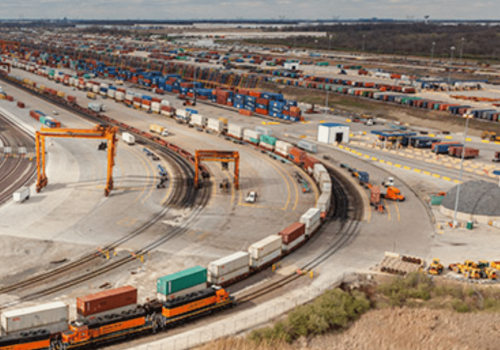Rail freight transit time is a crucial factor in logistics and supply chain management, influencing everything from delivery schedules to overall shipping costs. Unlike road or air transport, rail freight operates on a complex network of rail lines, schedules, and coordination efforts that determine how quickly goods move from origin to destination. Many factors contribute to the efficiency of rail transit, including route planning, cargo type, rail infrastructure, weather conditions, and intermodal connections. Understanding the intricacies behind rail freight transit time helps businesses optimize their shipping strategies, reduce delays, and improve overall supply chain efficiency.
Route Planning and Rail Network Efficiency
One of the primary determinants of rail freight transit time is the route selected for transportation. Rail networks are designed to connect key industrial hubs, but some routes are more direct than others. Trains moving through major rail corridors often experience faster transit times due to well-maintained tracks, fewer detours, and streamlined coordination between rail operators. In contrast, shipments moving through remote or less frequently used routes may experience slower transit times due to limited rail infrastructure, required track sharing, and fewer available train services. Some shipments require multiple rail carriers, leading to handoff points where delays can occur if scheduling is not well-coordinated.
Impact of Cargo Type on Transit Time
The type of cargo being transported also plays a significant role in determining rail freight speed. Time-sensitive goods such as perishable food products or high-value electronics may be prioritized for faster transit and require specialized railcars with temperature control or added security. Bulk commodities such as coal, grain, and raw materials generally follow a slower transport schedule due to their non-urgent nature. Additionally, hazardous materials often require extra handling precautions, specialized railcars, and regulatory compliance checks, which can add to overall transit time. Rail companies must balance these different types of cargo while maintaining efficient scheduling and meeting customer expectations.
Intermodal Transfers and Coordination Challenges
Rail freight often operates as part of an intermodal transportation system, requiring coordination with trucking and shipping services. When cargo moves between trains and other modes of transport, delays can occur if there are inefficiencies in unloading, container transfers, or scheduling mismatches between carriers. Ports, rail yards, and distribution centers serve as critical points in the supply chain where rail freight transitions to road or sea transport, making proper coordination essential. Streamlining these processes with real-time tracking systems and improved logistics management helps minimize unnecessary waiting times and enhances overall transit efficiency.
Weather and Environmental Factors
Rail freight transit time is also influenced by external factors such as weather conditions and natural disasters. Severe storms, heavy snowfall, flooding, and extreme heat can impact rail operations, causing delays due to track obstructions, maintenance requirements, or safety precautions. In colder regions, ice buildup on tracks or frozen rail switches can slow down train movement, while excessive heat may lead to track expansion, requiring speed restrictions. Rail operators must have contingency plans in place to address weather-related disruptions and minimize transit delays.
Storage and Logistics Management for Rail Freight
For businesses that rely on rail freight, proper storage and logistics management are essential for maintaining efficient supply chain operations. Shipments that are delayed in transit or awaiting transfer at distribution centers often require temporary storage solutions to prevent congestion and streamline inventory management. Many companies use storage units to store goods before they are loaded onto trains or while they wait for further distribution. Secure storage solutions allow businesses to manage stock levels, reduce handling costs, and ensure that shipments remain organized until they are ready for transport. By integrating strategic storage facilities into their logistics planning, businesses can mitigate delays and maintain smoother rail freight operations.
The Future of Rail Freight Efficiency
As technology continues to evolve, rail freight is becoming more efficient through the use of advanced tracking systems, automated scheduling tools, and improved rail infrastructure. Real-time GPS tracking allows shippers to monitor transit progress, anticipate potential delays, and make necessary adjustments to delivery schedules. The introduction of high-speed rail for freight transport is also being explored in some regions, potentially reducing transit times for time-sensitive shipments. Investments in modernized rail technology, such as energy-efficient locomotives and smart logistics software, are further improving rail freight’s reliability and cost-effectiveness.
Maximizing Rail Freight Transit Efficiency
Understanding the factors that influence rail freight transit time allows businesses to make informed decisions about shipping strategies, reducing unnecessary delays and optimizing delivery schedules. By selecting efficient routes, coordinating intermodal transfers, investing in proper storage solutions, and leveraging new technologies, companies can enhance the overall reliability of rail freight transport. As rail networks continue to expand and improve, businesses that adapt to these changes will benefit from faster, more cost-effective, and sustainable shipping solutions that support long-term growth in the logistics industry.



